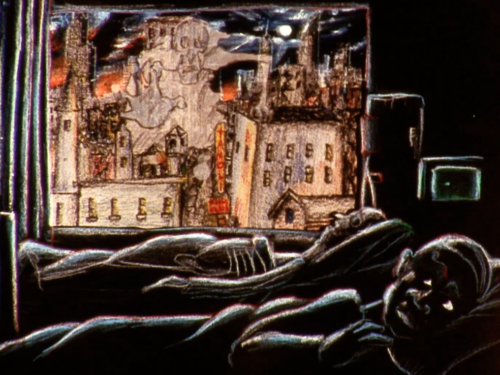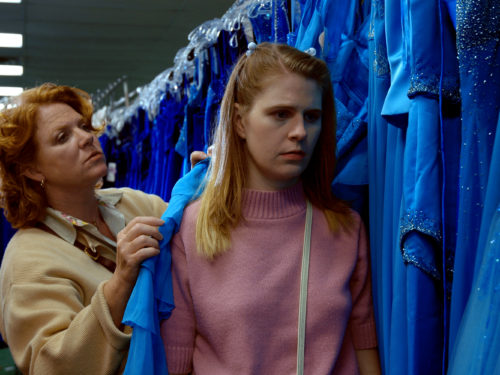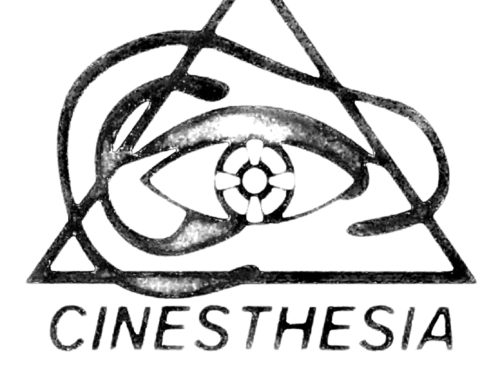Motern Media’s funniest film plays like a spiritual successor to its most muted, a film like no other in the Motern oeuvre. Both take Matt Farley’s and Charles Roxburgh’s filmmaking to new heights after a long hiatus
Author’s Note: I spoil parts of the surprising endings of both films mentioned in the headline. If you intend to watch them — and I think you should — do it before reading what I have to say about them. Keep this page open and come back in a few hours. Tell your friends to do the same.
Thanks to an ever-growing catalog of novelty songs about names, toilets, and just about every city in the US, Matt Farley has appeared on the Tonight Show and amassed the streaming numbers sufficient for sustaining a middle-class living. What Farley lacks in mainstream success, he more than makes up for in self-confidence. He proudly describes himself as both the most prolific and the greatest songwriter alive. Despite their quality and Farley’s tireless promotion, his thousands of “no joke” songs, often composed alongside college pal Tom Scalzo, attract comparatively little fanfare. Until fairly recently, the same was true of the films Farley writes and directs with Charles Roxburgh, whom he also met at Providence College. Taking inspiration from regional horror oddities and set in a New England all their own, Farley’s and Roxburgh’s collaborations can only really be compared to one another. Even the two that heavily recall The Pit (1981) prove utterly singular viewing experiences with unpredictable narrative turns. Though the songwriting pays the bills, Farley continues to lose money as a filmmaker. Thankfully, Motern’s audience is growing. They are among the best filmmakers working today.
I first encountered Farley and company’s Motern Media project in 2019 through an episode of the Important Cinema Club podcast. Co-hosts Justin Decloux and Will Sloan have since distinguished themselves as among the most vocal and influential of Motern acolytes. In 2020, the pair published Motern on Motern, a book composed primarily of a film-by-film interview series with Farley and Roxburgh. That same year, Decloux’s boutique Blu-ray label, Gold Ninja Video, began to serve as Motern’s primary home media partner. Including bonus features, GNV has released eight of Farley and Roxburgh’s unclassifiable films, with two more on the way this month. The year 2020 offered yet another milestone for the duo when Toronto’s Laserblast Film Society (co-founded by Decloux and programmer Peter Kuplowsky) partnered with the Spectacle Theater for an online series of double features. Post-pandemic, the filmmakers have enjoyed what Farley has, quite rightly, called “a run of excellence.” The “most exciting filmography of the 2020s” began with maybe the best Motern releases yet — Heard She Got Married (2021) and Metal Detector Maniac (2021) — a pair of films presenting wildly different takes on similar scenarios.
Matt Farley: And then we have a brand new idea, which happens so frequently as one movie’s ending. Now I want to do another black and white movie that’s an even darker investigation situation where once again I basically play myself.
As a result of COVID-era travel restrictions, Farley and Roxburgh had to pause production on Metal Detector Maniac in 2020. They had no intention of delaying their reemergence. Unbeknownst to their fans, the Motern team used this unplanned downtime to make Suburban Noir a reality.
Released in June of 2021 without a word of advance promotion, Heard She Got Married features some of the hallmarks of Motern’s previous releases. Farley’s music plays on the soundtrack, regular supporting players like Sharon Scalzo and Kevin McGee deliver stylized dialogue, but something has obviously changed since Slingshot Cops (2016). A strange tone, even an eerie one, is nothing new for Farley and Roxburgh, yet this film’s every moment echoes in a new minor key. More than any of Motern’s wacky horror-comedy hybrids, Heard She Got Married resembles Local Legends (2013), the autobiographical documentary that Farley directed (and wrote, shot, and edited) solo. That film sees Farley narrate a version of his life and answers most of the questions you might ask after learning about either one of his artistic careers. We witness plenty of setbacks before arriving at the film’s tender and hopeful ending. In addition to sharing his paltry per-song earnings, Farley dramatizes conversations with skeptics, nights spent at his “day job,” and a performance downgraded from a 1500-person venue to a half-full suburban basement.
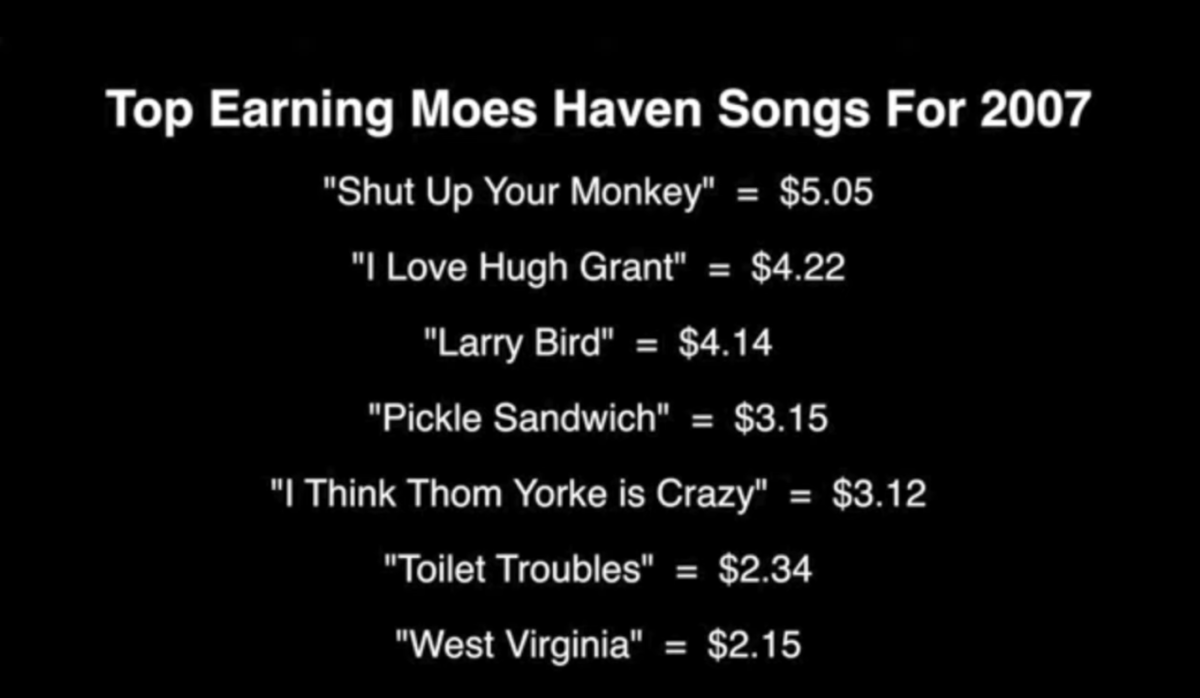
Early Motern films have an epic scale that belies their modest means and perfectly suits the bold ambitions of their makers. Casting Farley as the Mayor of Thomasville (as opposed to just anybody) in Adventures in Cruben Country (2002), for example, both raises the stakes and creates an on-screen world that is at once more fantastical and more simple than reality, even if the character looks and acts more or less like the real Farley. “In the real world it’s kinda hard to run for mayor,” says Roxburgh, “and it takes time to build a following . . . you can’t make a lot of money going door-to-door selling hot dogs and CDs. In our movies those things work, with very little paperwork, and it’s all better than real life!” For all its fantasy sequences, staged recreations, and fictionalized characters, Local Legends focuses primarily on the ways real life inevitably complicates the dreams that compel young artists to pick up guitars and cameras. Nevertheless, semi-non-fiction cinema still leaves Farley with some opportunities to elevate his characters. Early on, Farley acknowledges that his and Scalzo’s band Moes Haven didn’t accomplish its goal of “meld[ing] the styles of Bob Dylan, Van Morrison, Pink Floyd into a musical concoction that would rock the world.” A title card offers some effusive praise, however, naming Moes Haven “the best pop/rock duo since Hall & Oates” in spite of its 15 years of obscurity. It becomes as true a statement as others offered via title card, statements like “Everyone’s a critic” and “film festivals are stupid.” Toward the end of the film, after hopes of a reunion show are dashed, Scalzo strikes a positive note. “We wanted to live the dream,” he says, “we just didn’t know what it looked like then.”
Were Local Legends strictly autobiographical, or made a few years later, Farley might have said, “hey, speak for yourself.” However much joy he finds in creation and collaboration, one never gets the sense that the real-life Farley is fully satisfied with his version of stardom. Scroll through his Twitter feed or listen to the Motern Infomercial Podcast and you’ll find, mixed in with the self-promotion and self-aggrandizement, some light-hearted expressions of jealousy, bitterness, and resentment. A tweet from last month comes out and says it.
Every Motern effort, however removed from reality, expresses some of Farley and Roxburgh’s disdain for arthouse snobbery and conventional indie cinema by virtue of simply existing. Discussing Druids, Druids, Everywhere (2004) with Decloux and Sloan, Farley jokes about making Motern’s first features in part to annoy viewers with high-minded affectations. Local Legends makes some of these resentments part of the text. When a character offers Blue Valentine and Take This Waltz (both 2013), movies neither you nor I have thought of in a decade, as examples of “real art,” it’s clear how Farley feels about the stuff of most festival and arthouse programs. Heard She Got Married is the first of Motern’s purely fictional films where negative feelings and a sense of personal unfulfillment seem to cast a pall over the action. It is also the first to take place definitively within the adult world.
Decloux, Sloan, and others have likened Farley and Roxburgh to kids who grew up and left home but never stopped making movies in their backyards. In Monsters, Murder, and Marriage in Manchvegas (2009), Farley, Scalzo, and Marie Dellicker seem to play actual children. Their endearing, straight-faced performances as the Manchvegas Outlaw Society help the film sustain its sense of summertime fun even while a deranged killer stalks the streets and an army of Trogs wreaks havoc in the woods. Although Farley plays more sinister man-children in Sammy (2002) and Freaky Farley (2007), both films delight at least as much as they frighten. The latter was probably Motern’s most genuinely unsettling film prior to Heard She Got Married’s release. Farley Wilder (Farley) haunts his small town as an infamous peeping Tom who opens and closes the film in especially menacing fashion. Even still, some of the more outlandish action betrays the film’s inherent playfulness and the warmth of its autumnal 16mm photography makes it a bizarrely cozy slasher. There is nothing comforting in Heard She Got Married’s stark, black-and-white images. Where Local Legends’ palette placed us in a world of cinematic imagination, here we’re stuck at a point in life when imagination ceases to exist.
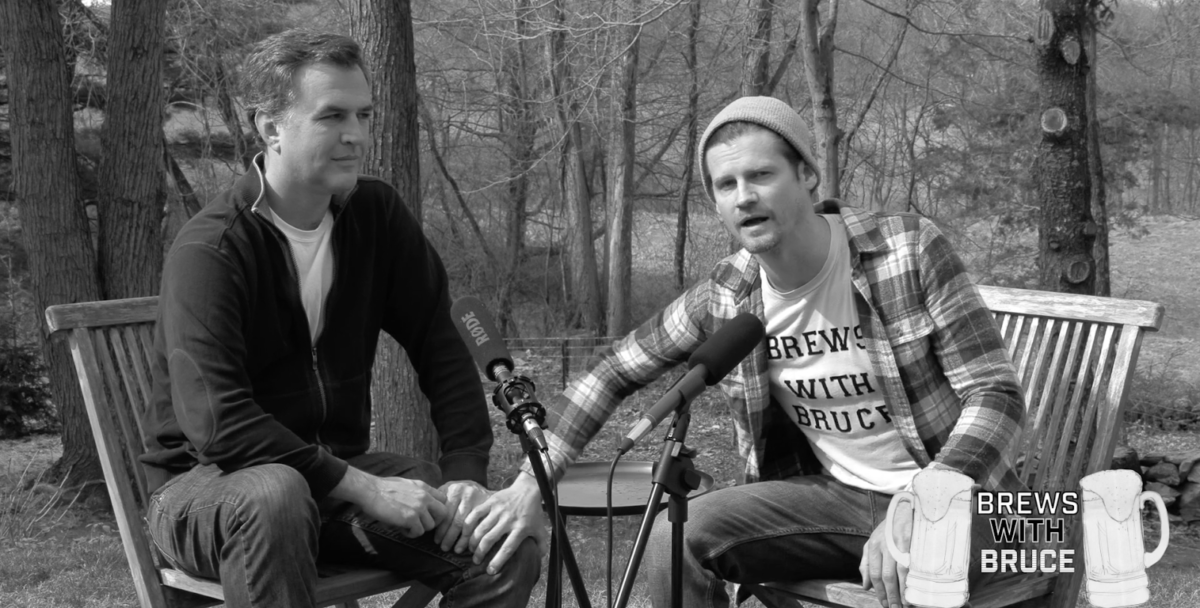
Even the deferred dreams sound less lofty this time around. Farley’s Mitch Owens opened for some bands in Nashville and his songs appeared in some indie movies; he wasn’t headlining in New York or lending tracks to Hollywood features. He’s not returning home a conquering hero or even quite a local legend. In fact, nearly every Tritown resident finds a way to dig at Mitch’s insecurities. Before taping an interview with Mitch for public access, beer-loving Bruce (Kyle Kochan) reflects on the “wild times” he and Mitch had out by the Mo 75 Rock: “That was our magic spot.” He introduces Mitch as “something of a legend in the Tritown area,” and still his opening remarks and questions are loaded with passive aggression and painful reminders. “I thought you’d be down in Nashville,” he says, “or moved out west to Los Angeles.” Later, WTTR host Theresa (Theresa Peterson) hits the word “locally” especially hard in her introduction before asking Mitch a series of questions that help tell the story of his brief semi-stardom. “As I recall, you got beat up pretty bad after the show,” she says. Mitch explains that he suffered a few broken bones and lost his spot on the tour after a show at the Old Forge Theater. Of course, Theresa didn’t need to ask, she was there to see the whole thing. When Theresa asks if it’s hard to use “personal things” as inspiration for music, he deflects much the same way he did with Bruce, replying, “When I’m telling a story, it’s my story. If it’s something I don’t want to remember, it never happened.”
The film doesn’t ask Farley to build a new character from scratch so much as it asks him to imagine an alternate, darker version of his own life and certain aspects of the Motern mythology. Mitch played in an unnamed band with a bassist named Tom Scalzo (Phil Kelnhofer, a perfect twist for this anti-Motern film) before leaving for Nashville. Tom later married Mitch’s ex-girlfriend Tara Edwards (Elizabeth Peterson, Farley’s real wife). Mitch even borrows Farley’s fondness for incredibly long walks. For Farley, they’re a great way to work out ideas for movies, talk about regional horror flicks with Roxburgh and Scalzo, or listen to Red Sox games. Mitch’s walks, which include some of the most artfully composed frames in any Motern film, seem more somber and reflective. For one, he’s always alone. From his first walk up a hill overlooking Tritown, we have reason to suspect Mitch is probably lying to Bruce when he says he hasn’t stopped by the Mo 75 rock in years and prefers not to think about the past. The fact that he’s listening to his own music on WTTR over the film’s opening moments should tip us off from the start.
The film begins inside Mitch’s head. When new neighbor Van Johnson (Pete) interrupts Mitch’s walk, “Late Night Fight by the Rock” quiets and stops. Johnson is instantly suspicious and seems to underline this fact with his every line. He asks Mitch to help him bring a bulky piece of furniture into his basement and offers stilted pleasantries as if to distract from the danger of the situation. He sounds like he’s recently and hastily studied a book on small talk. Sure enough, Mitch winds up locked inside the basement alone, but the smiling Van soon opens the door and laughs off the incident. As Van grills homemade hot dogs, presumably around nine in the morning, he and Mitch talk music. Even to an out-of-towner, Mitch’s reputation precedes him. “When I moved here, I wondered if I might meet you,” Van says, before cutting Mitch back down to size: “I didn’t expect you’d be wandering the streets seemingly without anywhere to be.”
After those interviews and a few long, solitary walks around what we’ll learn were the sites of raucous high school parties, Mitch invites Van to form a new musical duo and perform at an upcoming concert. Though the first jam session goes well, Van immediately begins raising more concerns. He claims that Tara Edwards sent him racy photos in the mail. Mitch’s investigation into Van begins in earnest as he first tries to determine whether he means Tar-uh (Peterson) or Tare-uh (Sharon Scalzo). Peterson’s Tara is maybe the one old acquaintance Farley consults who’s totally comfortable in the present and not at all happy to see him. She never mentions any of the wild times she shared with Mitch. Later on, she’ll only reference the old days as a way of saying she’s moved on. “We all had a good time when we were kids, but it’s over.” Before checking in with the other Tara, Mitch briefs Officer Mayo (Jay Mayo) on the case so far. He’s managed to make the meeting fit into his schedule, but just barely. With just a 30-minute lunch break available for his high school friend, it’s clear he has transitioned almost entirely into the adult world. As he puts it, “he’s a working man now.” When he hears more about the case, he’s not quite convinced that either woman would have sent the snapshots, but he suggests speaking to the other Tara, “the wilder of the two.” Even he’s not immune to thoughts of the past. Recalling trysts with Tara down at “the Cathedral,” an abandoned utility building that we’ve seen the camera linger on during Mitch’s walks, Mayo slips into a nostalgic reverie and admits to “missing those days something fierce.” Tara denies sending the photos too, though she makes the now-expected reference to partying, sighing, “We were wild kids in those days.”
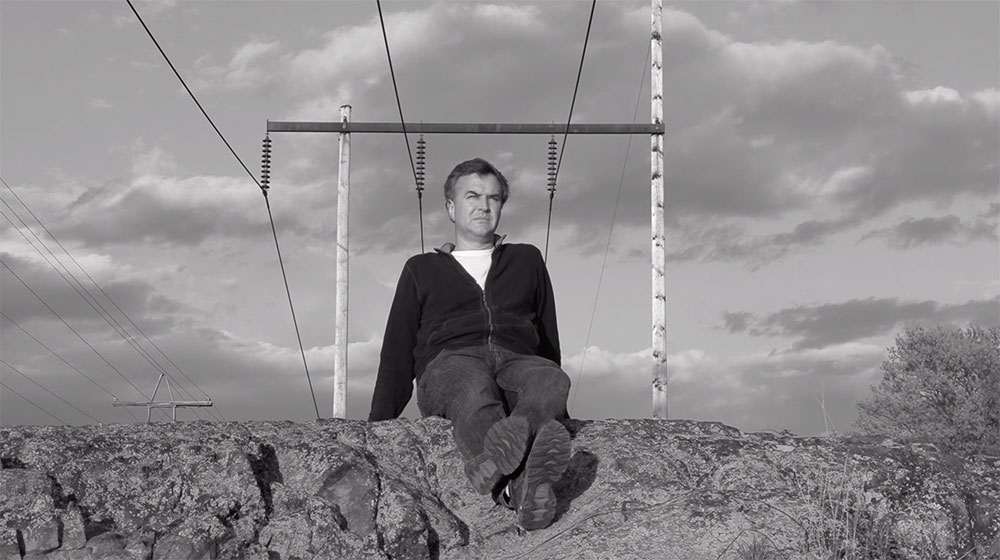
For all its true-to-life moments of disappointment, Local Legends continually lightens the mood with snippets of Farley’s songs about feces, celebrities, and food. Farley may have to settle for a smaller crowd for his climactic performance than he had expected, but they love his stuff. Heard She Got Married’s downbeat keyboard score doesn’t encourage us to smile and laugh through failure; it echoes the loneliness and regret on screen. Many of the songs Mitch performs make these feelings text. If you’re encountering Motern Media for the first time, it’s possible you’ll spend the first act wondering if you’re supposed to laugh, or if the actors are in on the joke. When “Don’t Cross that Road” plays over the most arresting series of images in any Motern film, first zooming out from the cathedral and up the hill to settle over Farley’s shoulder and then framing Farley all alone, gazing down on Tritown against a backdrop of gray sky and power lines, it’s clear you’re not just supposed to laugh. When Van and Mitch’s emphatic performance of the title song starts, there is no mistaking that Farley at least is very serious. For an audience of just 18 people, Farley and Peterson sing “why doesn’t anybody listen to me” with the desperate intensity of a friend left behind, a long underappreciated artist, or someone with a hunch begging anyone to take it seriously. Despite a taste of fame in Nashville, Mitch makes it plain that he feels like the one left behind. He never left the cathedral or the Moe 75 rock.
A post-show discussion provides more details about Mitch’s feuds and resentments while provactively blurring the line between actor and character. Mitch expresses sentiments about the value of creativity for its own sake that should sound familiar to any long-time Motern fan. Here, he still sounds embittered but also suddenly enlivened, empowered:
Mitch: [Tom] didn’t believe in the music the way that I did. To him it was just like a fun thing to do on the weekends. For me it was everything . . . He was 21 years old, and all he wanted to do was be married and have some cushy job.
Van: I’ve been working at the post office since I was 21.
Mitch: And I bet it hasn’t been nearly as thrilling as last night’s show. And last night’s show? It wasn’t even that good. The place was practically empty, but it was still magical. Some of the kids there, they knew the words to the songs. Did you feel it?
While Mitch’s misgivings about his new mailman never fade, he continues to perform with Van, confiding in him about the falling out with Tom and his lingering feelings of resentment. Mitch explains how he tried to get his bandmate to follow him to Nashville. Tom instead settled down at 21, putting aside youthful dreams of stardom to start a family with Mitch’s ex. One line from Mitch presents an especially deft blend of humor and genuine hurt. When Van says, “You can’t be a kid forever,” Farley replies, “Yeah, but what’s the rush? They went straight from young to old. That’s actually a direct quote from the song I wrote about the whole situation.” That song, “They’re Already Nostalgic,” sounds more specific than “Heard She Got Married,” seeming to aim its lyrical digs directly at Tom and Tara, charging them for choosing comfort and nostalgia over dreams. Like Van, Mitch also grows more unsettling as the film goes on. His unaccompanied basement performance of “They’re Already Nostalgic” functions like a monologue and reveals an even more regretful and resentful character than we’ve already seen. Mitch’s characterization of wedded adult bliss as “sleeping tight with no fights” even implies a dark side to the life of childlike imagination and wonder. Is it full of sleepless nights and conflict?
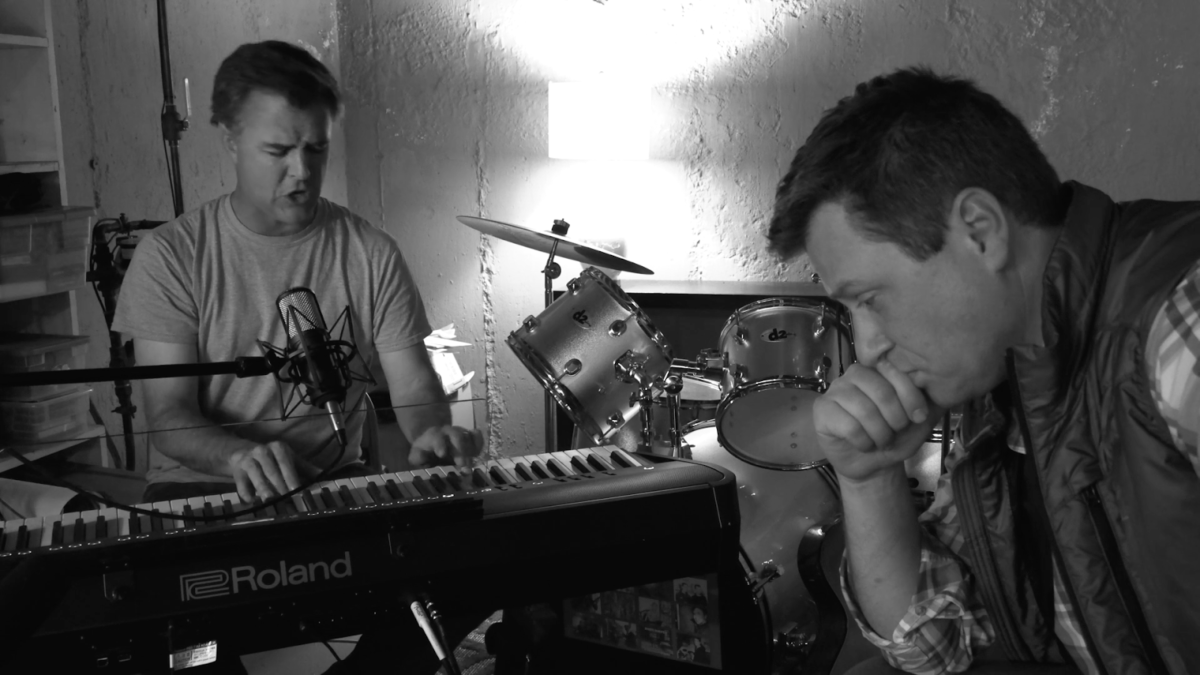
Heard She Got Married’s shocking and abrupt ending seems to suggest that Mitch was right to feel suspicious all along. The cover art for its upcoming sequel, Heard She Got Murdered, suggests the possibility of an intentionally misleading climax and an unreliable, sinister central character. Maybe it was Mitch who brought the sense of unease to Tritown and maybe we were encouraged to hear and see what he wanted us to. After all, we start the film literally hearing through Mitch. We’ll know before the month is out. In the meantime, Metal Detector Maniac plays like a kind of spiritual sequel to its pandemic-era successor. Once again, Farley stars as a semi-successful musician who becomes suspicious of a mysterious neighbor and, through his investigation, injects “Motern-ness” into an otherwise relatively ordinary world. If Heard She Got Married finds disturbing ways to echo familiar Motern notes, Metal Detector Maniac amplifies them by taking the laughs and narrative leaps to new levels.
Professors Matt Farley and Tom Scalzo (Farley and Scalzo) record music as Moes Haven and teach songwriting at a New England college. Though they’re shown to mostly irk the music department, our look at the Summer Songwriting Session shows that they’re beloved and effective teachers. Peter Kuplowsky leads the performance and singalong, a metatextual reminder that the real Motern crew’s boundless creative spirit is infectious. Where once Farley and Roxburgh had to hope their cast members would show up and make it through long shoots, they’ve now got fans who’ll volunteer to take part in their productions. At the same time, we see how the professors’ rising academic clout may have begun to make them worse educators. When a Session attendee asks if they’ll be holding office hours throughout their upcoming sabbatical, Farley laughs the question off, as if to say that office hours are for professors who haven’t yet graduated to the real business of working vacations. It’s the first taste of Metal Detector Maniac’s academic satire, where the joke is at once on the professors and the institution that’s stuck with them.

This version of Moes Haven’s prolific songwriting output wouldn’t be possible without pre-writing on the basketball court. In a habit that echoes Local Legends, Farley and Scalzo spend part of most days playing one-on-one games in which they also play the part of NBA players. Reframed as creative exercises, the games are meant to open the mind and invite songwriting energy to flow. Basketball provides inspiration almost immediately when “John Starks and John Havlicek” spot a mysterious figure with a metal detector. Farley’s mounting concerns combine with his insatiable need to write. Farley begins to spin a narrative out of the encounter, “Havlicek, dribbling at the top of the key, seems a bit distracted by the hulking presence in the distance. A man with a metal detector. A metal detector maniac, if you will.” It’s only moments before Farley and Scalzo are warning passers by about the obvious creep in their midst. Once they’ve returned to their basement studio, Farley and Scalzo waste no time in making the maniac the subject of their latest album. Interviews and research only raise more suspicions about local self-published poet Art Wiedenhauer (Pete). As Farley and Scalzo’s sleuthing continues, stream-of-consciousness recording sessions lead to some of the biggest laughs of the film’s first few acts. The duo’s rumination on the word plainclothes1 is especially good, as is the song that charges Wiedenhauer with crimes ranging from vandalism to kidnapping. As with Heard She Got Married, the citizen sleuths have a tough time convincing anyone that a potential criminal is hiding in plain sight. Though this version of Moes Haven proves capable of drawing enthusiastic crowds, many are quick to sneer at Farley and Scalzo’s musical output as well. The professors get dismissed as amateurs, described as, “like a couple of high school kids with some kind of garage setup,” and derided by all but a few of their colleagues.
The soundtrack, the mystery plot, and Metal Detector Maniac’s academic satire coalesce beautifully when Farley and Scalzo offer an early update on their progress to the music department. After playing “Occam’s Razor,” Farley explains their ongoing detective work:
Professor Farley: While we’ve been working on the pre-writing, we encountered a guy with a metal detector. A maniac, really. And we’re working him into one of the songs so far.
Professor Scalzo: It’s potentially a peek at the darker side of our bedroom community.
Professor Farley: The guy just permeated evil.
Professor Scalzo: Exuded.
Professor Farley: He exuded evil. Although one could say that he permeated an evil into our otherwise peaceful and “benelovent” bedroom community. Wouldn’t you say?
Professor Scalzo: I wouldn’t quite put it that way.
This conversation suggests that Farley’s most credentialed character is among his most buffoonish. Professor Farley both misuses and stumbles over two-dollar words. Intentional or not, the flubs poke fun at both Motern’s preference for grandiose dialogue and the often unfounded pretension of self-styled intellectuals.2 When asked how their sabbatical might affect their teaching style, Farley doesn’t even try to answer, offering just, “I’ve got nothing” before deferring to Scalzo. The filmmakers mix in some digs at the university. Professor Farley reminds the music department that his and Scalzo’s songwriting practice is no more ridiculous than the work of Professor Phil (Phil Cote), a lutist, and that self-publishing their work is far better than relying on the University Press. The filmmakers subtly jab at both the university’s cheapness and their own limited craft services budget with a sparse snack tray available for this faculty meeting: an apple or two, a few English muffins, some cookies, an already-opened chocolate bar. On the GNV commentary and in Motern on Motern, Farley and Roxburgh describe waiting hours to craft decadent meals from leftover snack trays. With this comparatively stingy spread, Metal Detector Maniac just briefly suggests the middle-aged dejection of Heard She Got Married. Farley and Scalzo ate better as students than as professors. They are surely calling on less positive memories when Professor Farley calls out instructors who assign their own books. Students, he ensures the faculty, will buy the album about Wiedenhauer simply because they love the music. As always, that love of music and belief in the restorative, community-building power of creativity permeates the film. When Wiedenhauer makes a surprise appearance in the crowd at a well-attended memorial show, the professors decide not to make a break for it. They instead endeavor to give the maniac “the best show of his life.”
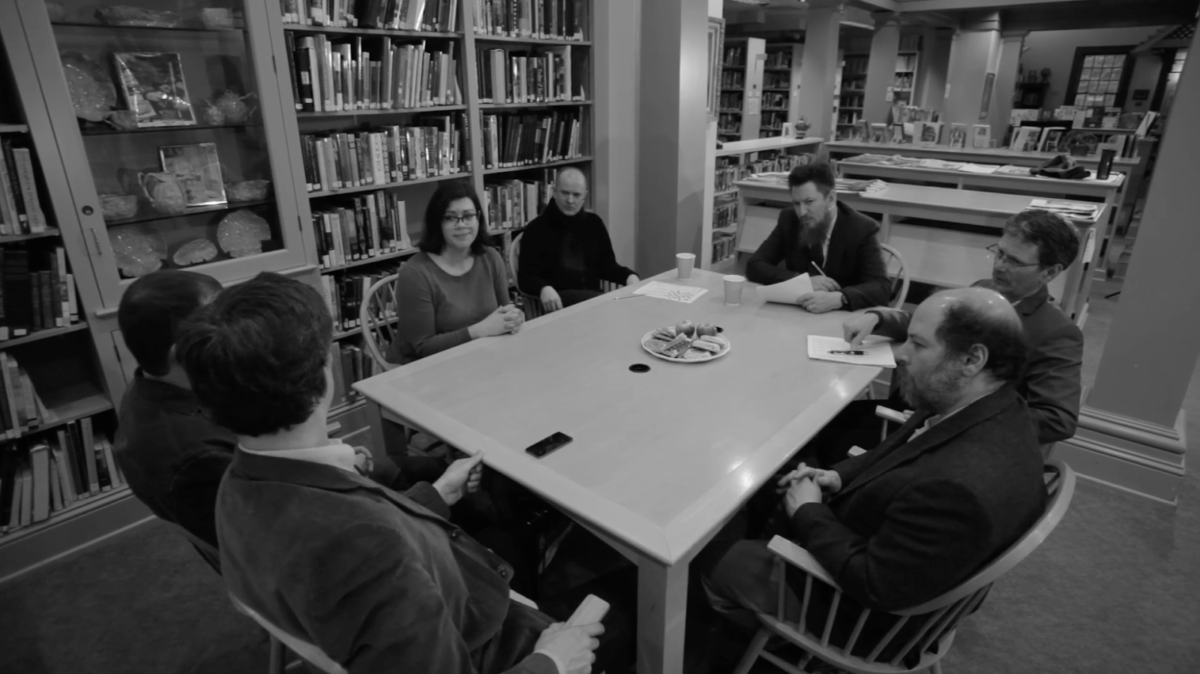
While Heard She Got Married culminates in a sudden shock, Metal Detector Maniac’s final act takes the opposite route. At around the 80-minute mark, the point where most Motern films are wrapping up, the professors make a startling discovery that seems to confirm their suspicions. The 40-minute denouement that follows brings more surprises, more laughs, more musical performances, and even a chance for Farley and Roxburgh to experiment with a new genre and a new style of filmmaking. It all confirms that the real-life Farley and Roxburgh have taken Professors Farley and Scalzo’s advice to heart and committed to letting writing take them wherever it may. As they tell their pupils at the Summer Songwriting Session, “it flows if you don’t think about it.” To say much more would only spoil an uproarious and truly unpredictable conclusion. I’ll only add that Farley and Scalzo wind up in prison for their trouble. Presumably no other film that ends with its leads behind bars also ends this joyously. With a literally captive audience, Professors Farley and Scalzo look as happy as ever. To create can never fail to thrill. Even when his alter ego is singing from behind prison bars, Farley’s is always the work of a free man.
Purchase Metal Detector Maniac and Heard She Got Married from Gold Ninja Video
Explore Motern Media’s Website for more info on the films, music, live shows, and more
Find the complete October Horror 2023 series here:
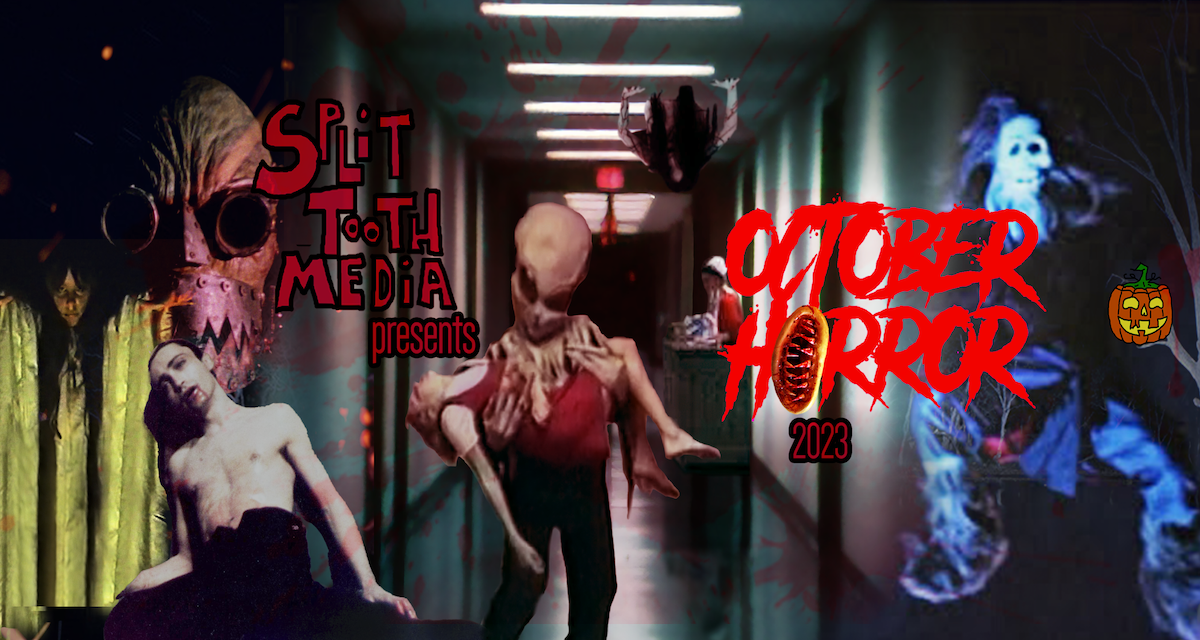
(Split Tooth may earn a commission from purchases made through affiliate links on our site.)
- It was only after reading Motern on Motern and learning about Farley and Roxburgh’s cost-saving measures that I realized Sharon Scalzo, Jim McHugh, and Jim Farley are probably plainclothes cops because that’s easier, cheaper, and, ultimately, funnier than rounding up three police uniforms.
- Farley admits to Googling himself regularly and has already responded to a tweet about this very piece. It’s never been likelier that someone I’m writing about will read the final product. Suffice it to say, I’m a little afraid he’ll poke fun at my sometimes Moternesque turns of phrase – phrases like “poke fun at.”


